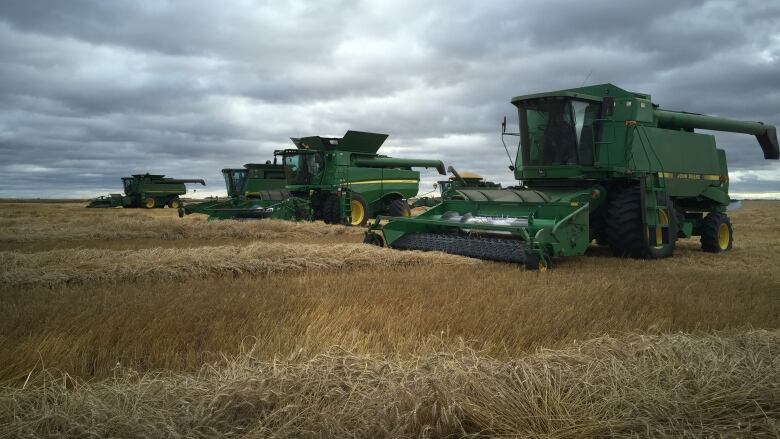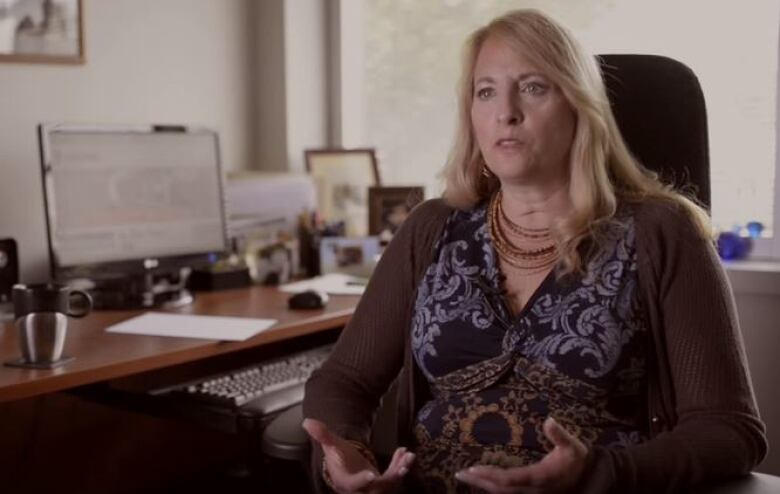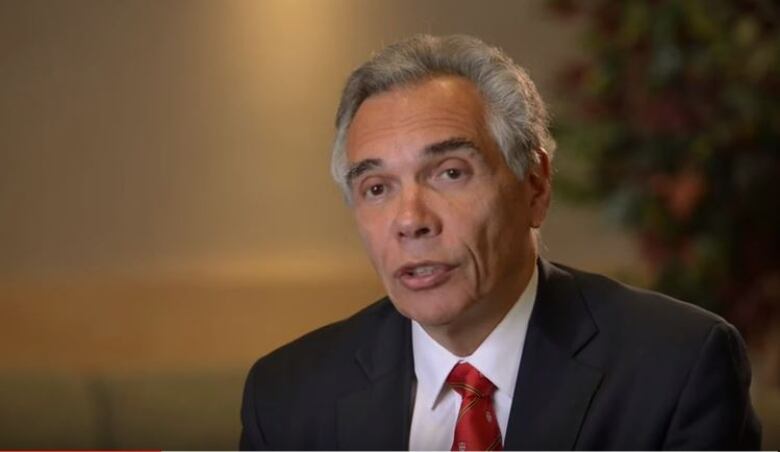Government funds video to help farmers combat anti-GMO movement
Video part of push to get farmers and scientists to stand up for genetically-modified crops

A government-funded documentary is issuing a call to action to farmers to dispel myths among city folk about the dangers of foods containing genetically-modified organisms.
The 30-minute film titled License to Farm,released online on Jan.15, is being heralded as a weapon to combat the anti-GMO movement, while also being criticized as insulting propaganda.
$200,000 video project
SaskCanola, an industry group that represents the province's 26,000 canola growers, invested $150,000 three-quarters of the cost to produce the documentary.
It also solicited another $50,000 from the Government of Canada and the Government of Saskatchewan through their agriculture funding framework, Growing Forward2.
Theirmisunderstandings and food fears are having an impact on government and regulations.- SaskCanola website

"Their misunderstandings and food fears are having an impact on governments and regulations," the industry group warns.
This video release comes at at time when many European countries have banned farmers from growingGM crops and several American states push for mandatory labelling of GM-foods in grocery stores.
Myths and misconceptions
GMOs are one of the most divisive issues in society, even greater than global warming. A recent Pew Research pollrevealeda large confidence gap between scientists and a skeptical public. Results showed88 per centof scientists agreedGMO foods are "generally safe," while 37 per cent of the public agreed with that statement.
"This misconception is spreading so quickly," Janice Tranberg, executive director of SaskCanola told CBC. She says farmers have too often stayed silent in face of the anti-GMO movement.
"They're pretty quiet folk, generally. They're pretty humble."
The industry film interviews farmers, most of whom are current or past board members of SaskCanola, about pesticide use, corporate farmingand the safety of genetically-modified seeds.
While genetic modificationis often perceived as a recent development, nature has cross-pollinated and farmers and scientistshave cross-bred plants and animals for desirable traits for thousands of years.
Today, scientists in laboratories do so more precisely by inserting specific genes from another plant species, bacterium or virus into a plant's genome to increase crop yield and resistance to drought and disease. GM varieties of canola, corn, and soya are common crops in Canada.
Thousands of GMO studies: Professor

"The alarmists are very good at making it sound like it were some kind of horrific Franken-foodscenario," Schwarcz told CBC News. "The real scientists are not out there talking very much to the general public."
"Genetically-modified foods probably have been better researched than any other type of food, or any other food component, in history. There have been thousands of studies done."
Anti-GMO lobbyists often claim the data is corporate-funded and lacks independence.
'Clever public relations': anti-GMO lobbyist
The video recognizes that consumers have concerns, and then dismisses them. And that's a mistake.- Lucy Sharratt, Canadian Biotechnology Action Network
Lucy Sharratt, coordinator for an umbrella group called Canadian Biotechnology Action Network, argues that tax dollars shouldn't be used for a "clever public relations" video that pits farmers against consumers.
"The video recognizes that consumers have concerns, and then dismisses them. And that's a mistake," Sharratt told CBC. "There are consumers that have legitimate concerns based on very real information."
GMO-label debate continues
TheCanadian Biotechnology Action Network is lobbying for mandatory labelling of GMO foods in Canada.
"We need better regulation in Canada. We need transparency in the grocery store," Sharratt said.
Professor Schwarcz supports labelling for transparency reasons, but says consumers will need education to understand that they're not warnings.
For example, canola oil is a purified product and itschemistry isn't affected by whether it's extracted from conventional, organic, or genetically-modified plants.

The License to Farmvideo is available for free online. SaskCanola hopes it can be introduced into classrooms across the country.












_(720p).jpg)


 OFFICIAL HD MUSIC VIDEO.jpg)
.jpg)



























































































